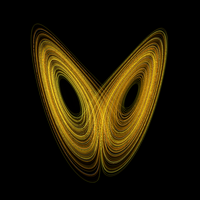A higher order theory of consciousness is, in a certain sense, a reductive theory of consciousness. Suppose some day we are granted an understanding of sentience and sensory states with their qualitative character. These provide one variety of transitive state consciousness. Suppose we also come to understand mental representation, or at least how thoughts represent. We would then understand two kinds of transitive state consciousness, or two ways of being conscious of something: by sensing it, or by thinking about it. What other resources do we need to give a full account of conscious mental states? It may seem that the latter question is a further and much harder question, requiring new and mysterious resources for its solution. But the bold answer of the higher order theorist is: nothing more is needed. Solving those problems would solve the problem of consciousness. With an understanding of sensory qualities and of how thought represents, you can give a full account not only of mental states but of the difference between conscious mental states and unconscious ones.
Clark , Austen; Phenomenal Consciousness so-called; Presented at the Italian Institute for Philosophical Studies, International School of Biophysics study program "From Neuronal Coding to Consciousness", Ischia (Naples), 12-17 October 1998
...simplified or over-simplified?
Subscribe to:
Post Comments (Atom)

No comments:
Post a Comment